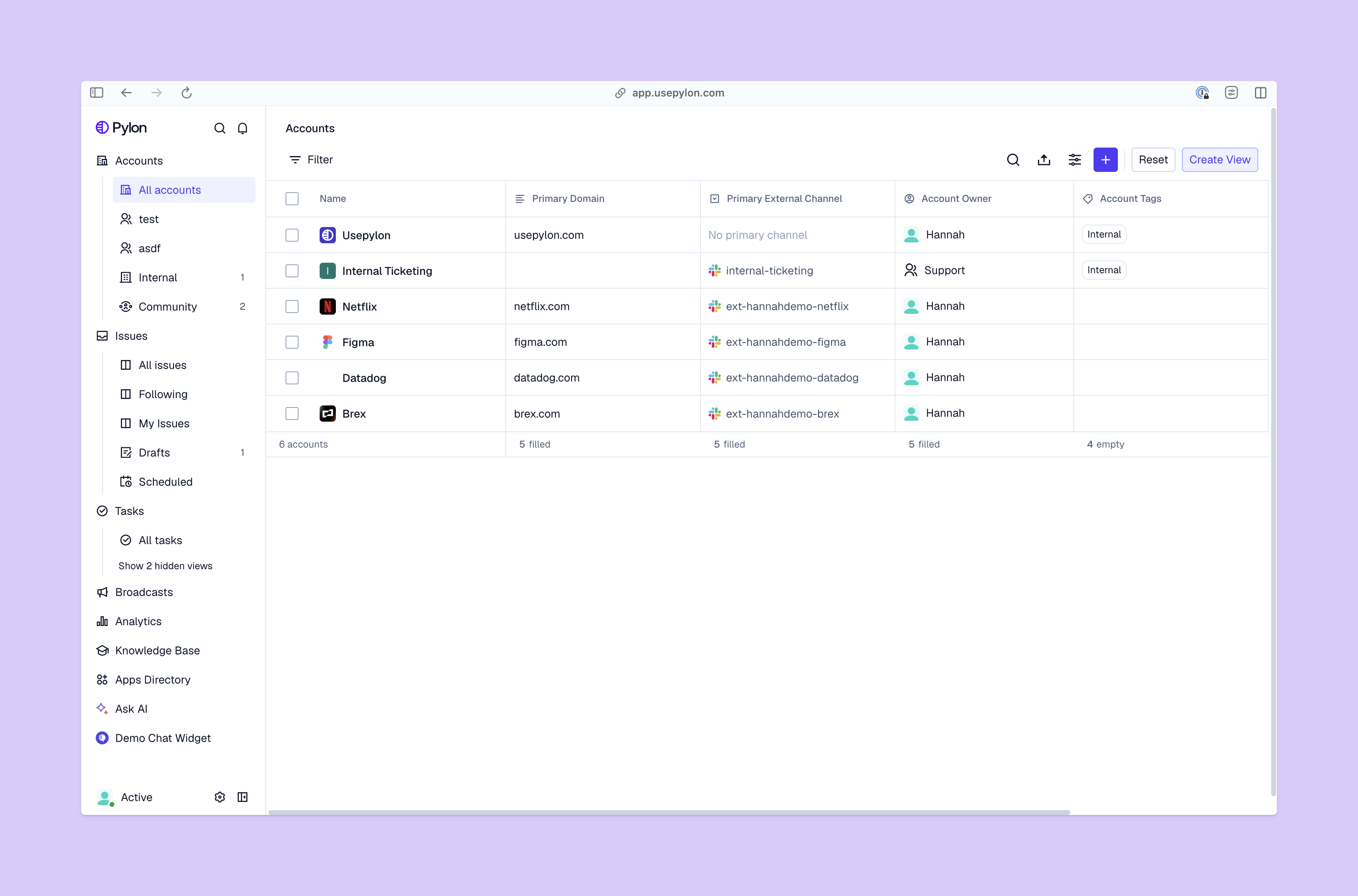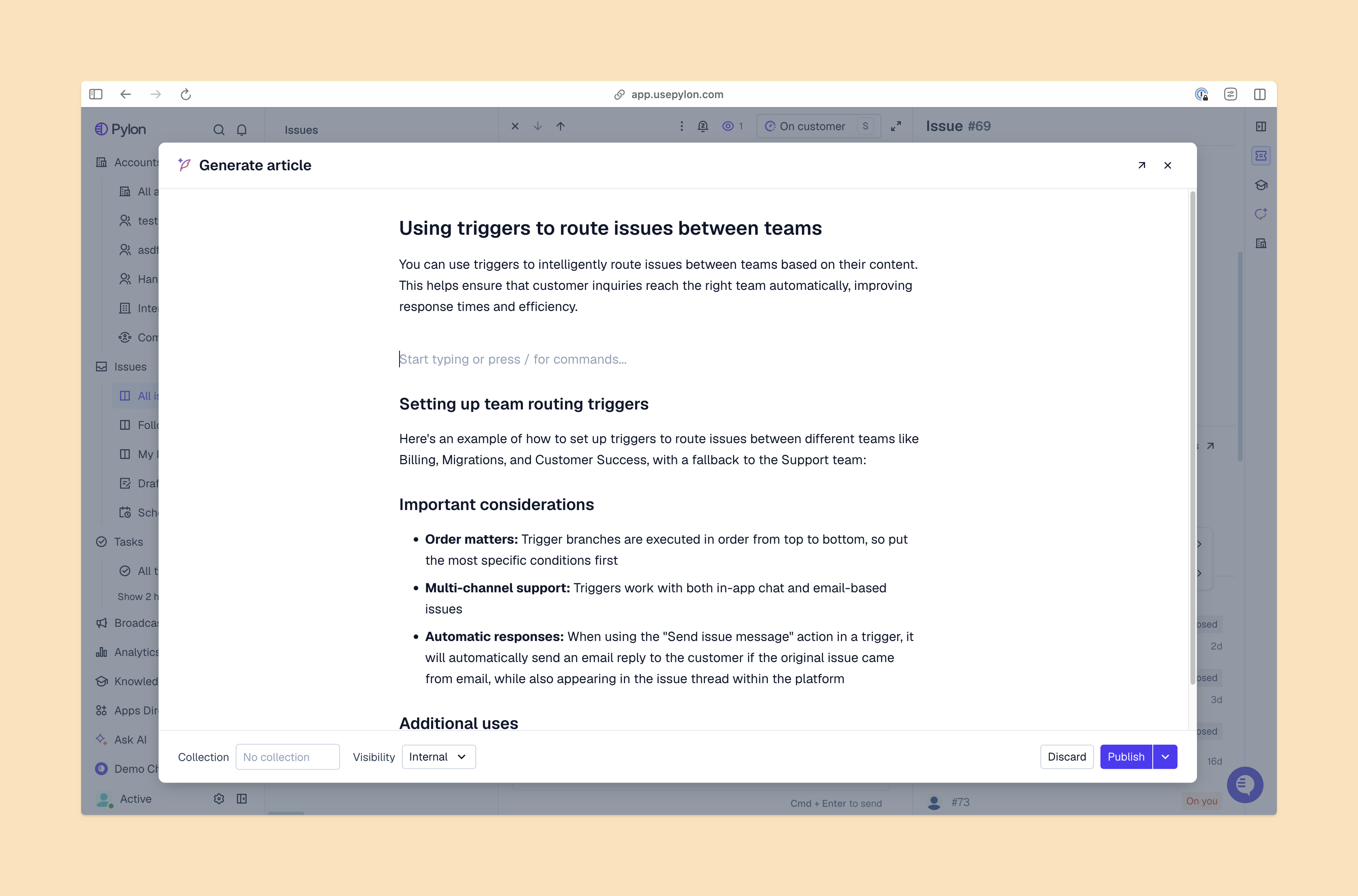How AI in SaaS Is Shaping the Future of Customer Success
AI in SaaS is changing customer success. Learn key benefits, major challenges, and real use cases for AI-powered software-as-a-service platforms.
For SaaS companies, adding AI to your support stack helps you better understand your customers, automate busywork, and spot issues before they turn into problems — all while keeping costs down.
In this article, we’ll walk through what AI in SaaS looks like, how it can improve your support workflows, and how other top companies are using it to open up new revenue and deliver support that feels effortless.
What’s AI SaaS for Customer Support?
AI SaaS refers to cloud-based platforms using AI systems like machine learning (ML), natural language processing (NLP), and predictive analytics.
Many traditional SaaS apps are designed with flexibility in mind, but AI-powered SaaS adds intelligence that turns static workflows into adaptive ones. For example, a SaaS company that makes customer relationship management (CRM) software might use AI to enhance their customer relationships and give customers the tools to do the same.
Similarly, SaaS AI tools can help you automate manual processes and deliver intelligent, personalized support. AI models analyze data to identify trends and predict churn, so you can scale smarter support experiences.
3 Key AI Technologies for Customer Support
Here are three of the most important AI technologies changing customer support.
1. Machine Learning
ML is the engine behind predictive analytics and intelligent automation. It recognizes patterns and uses them to generate algorithms, creating general responses to help customers without 24/7 human oversight. ML helps AI SaaS platforms detect user patterns, forecast churn, and deliver proactive solutions based on behavioral data.
2. Natural Language Processing
NLP means AI can read and craft responses in human languages, making chatbots and other AI tools more flexible and context-aware. It powers ticket classification, sentiment analysis, and self-service recommendations.
3. Robotics Process Automation (RPA)
RPA automates repetitive manual workflows like task creation, knowledge base updates, and customer notifications in a cloud-based environment. When it’s used with AI, RPA turns static systems into self-optimizing platforms that evolve over time.
11 Ways AI in SaaS Builds a Better Customer Experience

Whether it's powering chatbots, improving predictive analytics, or onboarding with care, AI SaaS platforms shape how your team connects with customers.
Here are 11 ways these systems can help you do better, faster business.
1. Instant Resolutions With AI-Powered Chatbots and AI Agents
Instead of waiting in a long queue for a simple response, your customers can get answers in seconds thanks to AI agents, assistants, and chatbots handling frequently asked questions through text or voice. The latest AI upgrades include advanced NLP, so AI support bots can even interpret tone and intent.
2. Proactive Customer Success
Many customers never raise a red flag before they stop using software. By analyzing product usage trends, feedback, and behavioral data, AI SaaS tools flag signs of churn before it happens. This insight supports proactive outreach while revenue stays steady.
For example, a customer might say “I can’t find last month’s invoice” to an AI agent, which could pull past interactions, track down the invoice, and send it to the customer without needing to escalate the ticket to your team. With Account Intelligence consolidating signals like activity data and sentiment, you can act before customers get frustrated.
3. Intelligent Ticket Routing and Prioritization
In high-volume support environments, not every issue can be top priority. AI algorithms can sort incoming requests by topic, tone, and urgency. Tickets about outages are fast-tracked to your support team; general questions get automated answers. This creates a leaner SaaS help desk workflow that delivers faster outcomes.
4. Less Response Downtime
Even the best support team members stall occasionally when searching for answers. AI assistants can minimize that downtime by suggesting relevant content from your knowledge base as the conversation unfolds. Support accuracy increases and resolution times shrink — a win for everyone.
5. Knowledge Base Management
AI SaaS platforms quietly maintain order. When hundreds of customers ask the same question, AI bots notice the trend, confirm context, and update guidance across all the channels your customers use. That consistency builds customer trust.
6. Sentiment Analysis
NLP means AI can read between the lines and determine if a customer is enthusiastic, confused, or frustrated. These emotional insights help AI support agents adjust their tone and content, which keeps communication empathetic and precise.
7. Reducing Churn
Using AI SaaS support tools means you don’t have to rely on guesswork to predict customer churn. AI models monitor customer support KPIs like engagement levels, usage, and support interactions to create dynamic health scores. When those scores dip, post-sales teams can step in with tailored outreach or offers.
8. Repetitive Task Automation
While things like finding specific features and pricing tier changes may only take a few seconds, collectively, they drain hours from your team’s week. RPA powered by AI systems can now handle these small, repetitive tasks. When routine work is automated, you take back bandwidth for strategy, creativity, and better customer support.
9. Customer Journey Personalization
No two users adopt software the same way. AI can also study customers’ behavioral patterns to offer personalized prompts when use starts to drop. This fine-tuning keeps customers engaged and helps SaaS products stand out in a market where experience often outweighs price.
10. Smarter Self-Service
Modern users prefer to help themselves, and AI makes that easy. As someone begins typing a question in a chatbot window, the system can instantly recommend relevant knowledge base articles. Each search teaches the AI algorithm how to improve its accuracy, which helps your team scale support while giving customers near-instant answers.
11. Coaching and Quality Assurance for Support Teams
AI can review conversations, highlight strong responses, and flag missed opportunities to help post-sales teams learn better practices. With this knowledge, managers get concrete examples for coaching while teams get more confident with each review.
Pylon offers several AI products to help you automate repetitive tasks, personalize the customer journey, and QA your support operations. Find out how Pylon AI Agents, AI Assistants, and AI Knowledge Management work together to automate busywork and empower your team.
Book a demo to see how it works
Benefits of AI in SaaS Customer Support

Integrating AI into SaaS support has tangible benefits for companies and customers alike. These include:
- Faster, high-quality responses
- Predictive analytics that identify trends and reduce churn
- User experiences that adapt to customer behavior
- Lower staffing costs by reducing repetitive manual processes
- Smarter decision-making with real-time data
- More opportunities to scale
Challenges and Ethical Considerations of AI in SaaS Support
While AI-powered SaaS support has a lot of potential, you also have to consider its downsides to make sure you’re adopting AI responsibly and effectively:
- Privacy and data protection. There aren't many AI regulations yet, so not every program offers the same level of security. Managing sensitive customer information in cloud-based infrastructure means you’ll need separate internal safety standards to protect it.
- Automation bias. AI is built and trained by biased humans. Teams need to regularly audit AI-driven outputs so its language and decisions stay fair for everyone.
- Transparency. AI systems build user trust with clear logic, and you build trust with your customers when you’re clear about when and how AI gets involved.
- Ethical adoption. Responsible AI algorithms should balance helpfulness with customer consent, protecting privacy while driving growth.
Pylon constantly looks for new ways to strengthen our security measures. Our AI-native support platform is held to high privacy and security standards: We’re compliant with ISO 27001, SOC 2 Type 2, GDPR, and HIPPA. You can review our AI subprocessors to make sure they match your safety standards, too.
Reach out to learn more about our privacy and security policies.
The Future of AI in SaaS Customer Success With Pylon
AI-powered SaaS is changing how we think about the customer experience. As AI grows, AI SaaS companies are using these tools to automate, personalize, and evolve at the same speed.
Pylon is the modern B2B support platform that offers true omnichannel support across Slack, Teams, email, chat, ticket forms, and more. Our AI Agents and Assistants automate busywork and reduce response times. Plus, with Account Intelligence that unifies scattered customer signals to calculate health scores and identify churn risk, we're built for customer success at scale.










